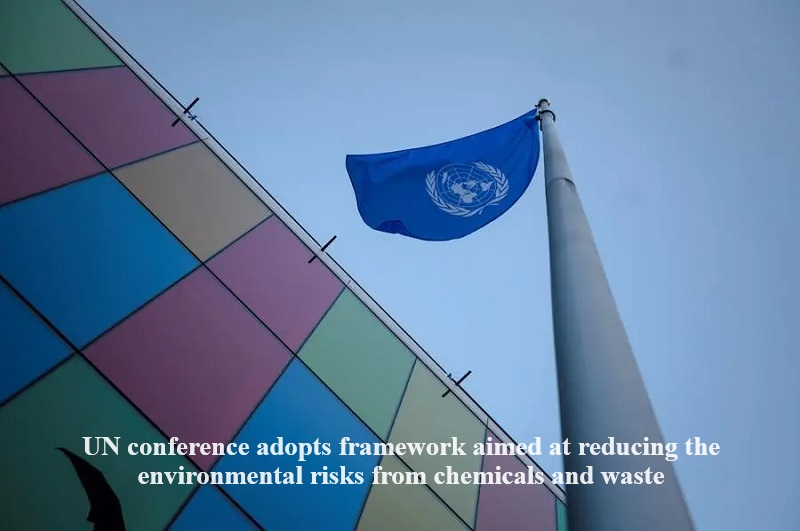
The United Nations conference, convened on September 30th, has embraced a novel strategy aimed at mitigating the environmental threats stemming from chemicals and waste. Numerous countries have pledged to eliminate the most hazardous chemicals within the next dozen years or so, endorsing a framework that also seeks to bolster the safe management of perilous chemicals where they are indispensable.
This comprehensive plan, known as the ‘Global Framework on Chemicals – For a planet free of harm from chemicals and waste,’ has garnered support from governments, corporations, and non-governmental organizations during the fifth International Conference on Chemicals Management held in Bonn, Germany. The framework meticulously delineates 28 specific objectives and directives applicable across the entire life cycle of chemicals, spanning from their production to disposal.
Among its key provisions are measures to curtail the illicit trafficking of chemicals and waste, the introduction and enforcement of national legislation, and the phased elimination of highly toxic pesticides in agriculture by the year 2035. Inger Andersen, the executive director of the UN Environment Programme (UNEP), conveyed that the vision behind this framework is to ensure that every inhabitant of our planet can live and work without apprehension of illness or death due to chemical exposure. Moreover, it envisions a world where nature flourishes uncontaminated and can sustain humanity for generations to come.
Furthermore, the recently ratified framework advocates for a transition toward safer and more sustainable alternatives to harmful chemicals, as well as the responsible handling of chemicals in various sectors, encompassing industry, agriculture, and healthcare. It also emphasizes the need for greater transparency and accessibility to information concerning chemicals and their associated risks.
Germany has made a notable commitment by earmarking 20 million euros ($21 million) for a fund created to facilitate the implementation of this framework, with contributions from various sources, which will be administered by the UN environmental agency.
In tandem with this initiative, conference attendees in Bonn also embraced the Bonn Declaration, a UN-backed endeavor that seeks to forestall exposure to harmful chemicals, phase out the most pernicious ones where appropriate, and enhance the secure management of these substances in contexts where they are indispensable.
Over the years, numerous studies have underscored the substantial correlation between chemical exposure and its deleterious impact on human health. The most harmful chemicals persist in the environment for extended periods, leading to ecosystem degradation and biodiversity loss. According to the World Health Organization, direct chemical pollution of the air, land, water, and workplaces has resulted in two million deaths annually. Additionally, a report by the Intergovernmental Science-Policy Platform on Biodiversity and Ecosystem Services (IPEBS) has highlighted the significant alteration of more than 75 percent of land and 40 percent of marine ecosystems due to human activity.

Post Your Comments